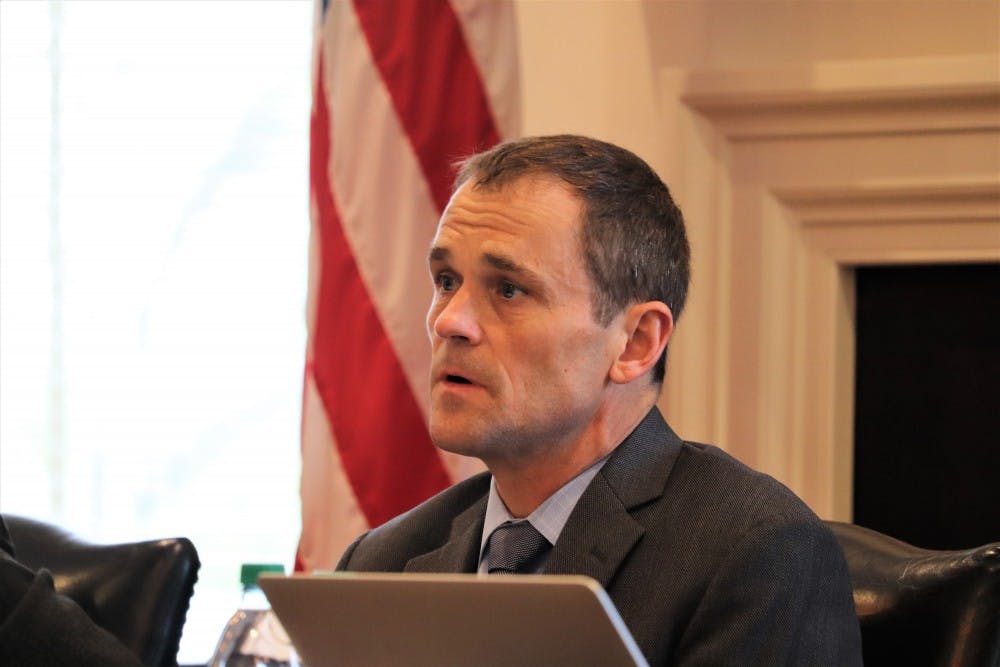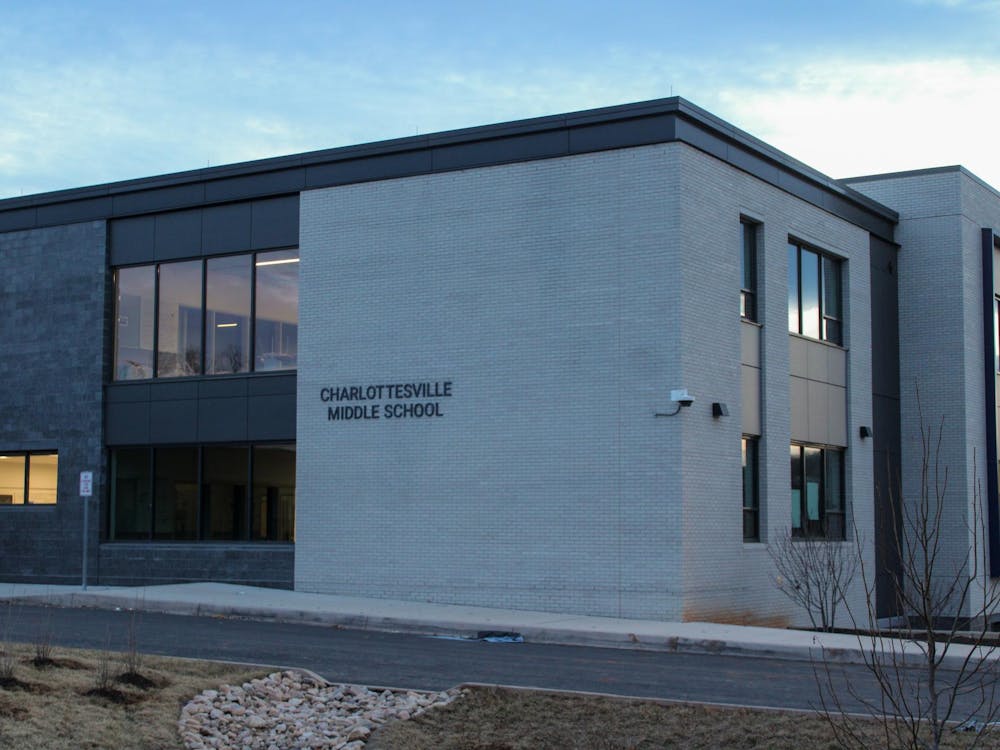For the first time in the University’s history, the Executive Committee of the Board of Visitors unanimously approved Friday to freeze in-state tuition at 2018-2019 rates for the 2019-2020 academic year in exchange for $5.52 million in additional state funding from the General Assembly.
The measure reverses a December Board of Visitors decision to increase base tuition for in-state undergraduate students in the College by 2.9 percent from $13,682 to $14,078 for the 2019-2020 academic year. However, out-of-state students will still see a base increase of 3.5 percent, from $44,724 to $46,289.
As a result, every in-state undergraduate student across all schools of enrollment will pay the 2018-2019 academic year tuition rate this fall. The average saving per in-state student will be $400 as a result of the freeze, according to according to J.J. Davis, the University’s executive vice president and chief operating officer.
Already-awarded financial aid packages for the upcoming academic year may be decreased slightly to accommodate the freeze, although financial need is still expected to be met for all students, according to University President Jim Ryan.
However, upper-division undergraduate tuition rates for all third and fourth-year students in the College, approved by the Board in March, will still be implemented in 2021 as planned. Third-year College students will be subject to a rate that is $2,700 higher than the University’s base tuition rate in 2021. In 2022 and every year thereafter, both third and fourth-years will pay the extra fee, generating $12 million annually for the University.
The decision to freeze undergraduate in-state tuition rates comes as a direct response to an allocation of $52.5 million by the General Assembly during its 2019 legislative session for an “In‐State Undergraduate Moderation” fund to incentivize public universities in Virginia to hold tuition rates for one year in exchange for increased state funds. The University will now receive $5.52 million of these funds, while the College at Wise will be allocated $235,000.
Among the allocations apportioned by the General Assembly as part of the fund, the University has the fifth highest amount. Virginia Commonwealth University has the highest proposed allocation at $6,797,000, George Mason University is second at $6,524,000, followed by Virginia Tech at $6,306,000 and James Madison University at $6,100,000. Each of these schools has already taken or has announced their intention to accept the funds in exchange for freezing in-state tuition rates.
Davis said no public institution being offered funding from the General Assembly has already declined the offer, but added that VCU leadership strongly considered doing so. Based on her discussions with members of the General Assembly in recent weeks, Davis added that the fund is likely to be a one-time appropriation as there are no current plans for extending it.
Before the committee voted on the tuition freeze, Ryan outlined the pros and cons of approving the measure but said University leadership ultimately recommended its approval.
“The legislature, in offering this funding, has explicitly recognized the link between state funding and tuition,” Ryan said. “That is a really important point for us to keep visible because if you look over the long term trend, the amount of funding that we have available for students today based on a combination of state funding and in-state tuition is actually less than it was in 1989.”
Ryan said the University’s increase of in-state tuition rates during the last few decades have been insufficient to offset declining funding from the General Assembly, adding that the creation of the in-state undergraduate moderation fund shows that the legislature is acknowledging and attempting to address the issue.
He further said that it would be in the University’s best interest to accept the deal as the General Assembly also approved a “very necessary” allocation of funds during the 2019 legislative session for the $160 million renovation of Alderman Library which is expected to commence in 2020.
However, Ryan said that while the increased state funding will temporarily offset any loss by foregoing the tuition increase, the freeze will still result in a decrease in funding collected from the compounding effect of tuition increases by 2030.
“Over the long haul, if you hold all else equal, this is a losing proposition for us financially,” Ryan said. “The fact that we are not raising tuition this year means that any increase is going to be on a smaller base.”
The combined increases would have generated $13.3 million in additional annual revenue, and in 2017, the University’s financial report said the school brought in over $545 million in tuition and fees.
Ryan added that this long term loss in funding could be problematic if state funding to the University were to suddenly decrease in the coming years. The current General Assembly budget for the 2019 and 2020 fiscal years includes nearly $3 billion in funds from the State Council of Higher Education for the University, not including the College at Wise or the U.Va. Medical Center. About $130 million of these funds are allocated for student financial assistance.
“If there is an economic downturn, and the state decreases state funding to U.Va., we may find ourselves in the position of having to increase our tuition and increase it fairly dramatically which is going to be fairly difficult politically,” Ryan said.
Many other board members also lamented the uncertainty and risk associated with the proposal but still chose to support it nonetheless.
University Rector Frank M. Conner III said his primary motivation for supporting the proposal was for the ability of the University to claim that it is doing all it can to keep tuition costs low, adding that it would difficult to make such a claim if the proposal were rejected. However, Conner also expressed concern about the financial ability of the General Assembly to provide similar funding incentives in the future, as he said the state has an unusually large budget this year due to federal tax cuts in recent months.
The General Assembly's 2019 and 2020 budget includes more than $123 billion in expenses in comparison to the 2017 and 2018 cycle which contained roughly $105 billion.
Vice Rector James B. Murray Jr. said the University has the lowest tuition rate increase of any public institution in Virginia and one of the lowest in the United States, adding that increases in expenses have outpaced tuition hikes. However, Ryan later noted that the University’s expenses do not exceed its revenues, adding that the budget does not operate at a deficit.
“The University of Virginia is not motivated by profit,” Murray said. “We’re motivated by educating as inexpensively as we possibly can.”







